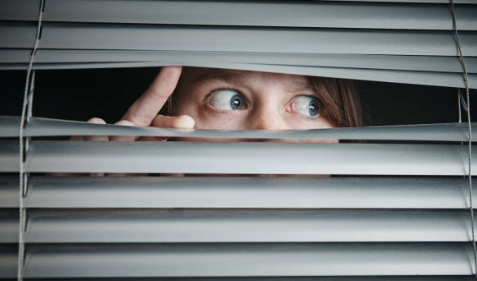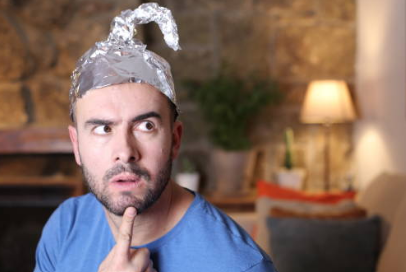Persecutory Delusions Overview
Certain psychological phenomena continue to captivate researchers and clinicians alike in a world where the boundaries between reality and imagination can blur. Persecutory delusions are a compelling subject of study, offering insights into human cognition and mental health complexities. This article delves into persecutory delusions, shedding light on their manifestations, associated symptoms, and potential treatment approaches.
Beyond isolated instances of paranoia, some individuals grapple with a more persistent and severe condition known as Persecutory Delusional Disorder. Understanding the hallmark symptoms of this disorder is pivotal for early identification and intervention. Delving into the intricacies of this mental health condition can offer invaluable insights into the lives of those affected.
What Are Persecutory Delusions?
Persecutory delusions are false beliefs or irrational thought patterns involving an individual’s firm and unwavering conviction that they are being targeted, harmed, or threatened by others. These beliefs are not grounded in reality and are often resistant to reasoning or contrary evidence. Persecutory delusions can be a symptom of various mental health disorders, most notably psychotic disorders, such as schizophrenia, schizoaffective disorder, and delusional disorder.
Individuals experiencing persecutory delusions might firmly believe they are being spied on, followed, plotted against, or otherwise persecuted by individuals, groups, or powerful entities like the government or extraterrestrial forces. These beliefs can be all-consuming and distressing, leading individuals to isolate themselves, become suspicious of others, and, in extreme cases, engage in defensive or aggressive behavior to protect themselves from perceived threats.
It’s essential to note that persecutory delusions are distinct from real threats or concerns. They are characterized by their irrationality and inability to be disproven through normal means of evidence or reasoning. Due to these persistent false beliefs, people with persecutory delusions experience significant daily distress and impairment.


Skip To:
Learn More:
Persecutory Delusions Examples
These examples illustrate the diverse ways persecutory delusions manifest, showcasing the range of false beliefs individuals might experience when grappling with this phenomenon. It’s essential to approach these cases with empathy and recognize that these beliefs often result from underlying mental health conditions requiring appropriate treatment and support.
- Constant Surveillance: People believe they are under constant surveillance by hidden cameras and microphones planted in their homes, workplace, and public spaces. They are convinced that an unknown group or organization monitors their every move.
- Conspiracy Persecution: Someone is convinced they are the target of a vast conspiracy involving influential figures, governments, or secret societies. They believe these entities plot against them and are determined to harm or control them.
- Personal Betrayal: Individuals believe their friends, family members, or romantic partners secretly work against them. They perceive innocent actions or conversations as evidence of betrayal, leading to strained relationships and social isolation.
- Stalking Delusion: A person firmly believes they are being stalked by strangers, despite having no concrete evidence to support this claim. They might interpret benign encounters with others as sinister attempts to track their movements.
- Mind Control: Someone is convinced that external forces, such as radio waves or telepathic communication, manipulate their thoughts and actions. They might take extreme measures to protect themselves from perceived mind control, such as wearing tin foil hats.
- Delusions of Grandeur: In some cases, persecutory delusions overlap with grandiose delusions. An individual might believe they are a significant figure targeted by influential individuals threatened by their influence.
- Electronic Harassment: This type of delusion involves the belief that the person is being targeted by electronic devices emitting harmful frequencies, causing physical discomfort and emotional distress.
- Online Persecution: With the rise of digital communication, some individuals develop delusions of being targeted and persecuted through online platforms, often attributing negative comments or interactions to organized harassment campaigns.
- Religious Persecution: Individuals with strong religious beliefs might develop delusions that evil forces are targeting them due to their faith. They might interpret ordinary events as signs of persecution related to their religious convictions.
- Medical Persecution: Some individuals might believe that medical professionals or institutions conspire to harm them through misdiagnosis, unnecessary treatments, or withholding proper care.
Get Help. Get Better. Get Your Life Back.
Searching for Accredited Dual Diagnosis Mental Health Centers Near You?
Even if therapy failed previously, or are in the middle of a difficult crisis, we stand ready to support you. Our trusted behavioral health specialists will not give up on you. When you feel ready or just want someone to speak to about counseling alternatives to change your life call us. Even if we cannot assist you, we will lead you to wherever you can get support. There is no obligation. Call our hotline today.
FREE 24/7 Dual Diagnosis Mental Health Services HotlinePersecutory Delusions Fact Sheet
- What are Persecutory Delusions?
- False beliefs are where individuals think they’re targeted, harmed, or plotted against by others without evidence.
- Examples of Persecutory Delusions:
- Constant Surveillance: Believing hidden cameras monitor every move.
- Conspiracy Persecution: Thinking powerful groups conspire against them.
- Personal Betrayal: Believing friends/family secretly work against them.
- Stalking Delusion: Firmly convinced of being stalked by strangers.
- Mind Control: Believing external forces manipulate their thoughts.
- Delusions of Grandeur: Feeling targeted due to perceived importance.
- Associated Conditions:
- Common in psychotic disorders like schizophrenia and delusional disorder.
- It can result in social isolation, anxiety, and strained relationships.
- Treatment Options:
- Psychotherapy: Cognitive-behavioral therapy challenges distorted beliefs.
- Medication: Antipsychotic drugs manage underlying psychotic symptoms.
- Support Network: Family and healthcare providers play crucial roles.
- Impact on Daily Life:
- It causes distress, affects relationships, and influences behavior.
- This can lead to extreme reactions to perceived threats.
- Understanding and Compassion:
- Recognize persecutory delusions as symptoms of mental health conditions.
- Approach affected individuals with empathy and patience.
- Seek professional help for accurate diagnosis and appropriate treatment.
Persecutory Delusions Statistics
Persecutory delusions, a hallmark symptom of various mental health disorders, provide a unique lens through which we can understand the prevalence and impact of psychotic conditions. By examining the statistical landscape surrounding persecutory delusions, we gain insights into the scope of their occurrence, their influence on affected individuals, and the challenges that healthcare providers and researchers face in addressing these complex phenomena.
- Prevalence in Schizophrenia: Persecutory delusions are one of the most common delusions in schizophrenia. They can affect around 70-80% of individuals with schizophrenia at some point during their illness.
- Other Disorders: Persecutory delusions can also occur in other conditions, such as delusional disorder and schizoaffective disorder.
- Age of Onset: The onset of persecutory delusions is typically in late adolescence or early adulthood, often aligning with the typical onset of psychotic disorders like schizophrenia.
- Gender Differences: While persecutory delusions can affect both genders, some studies suggest a slightly higher prevalence in males compared to females in specific populations.
- Comorbidity: Persecutory delusions can occur alongside other symptoms of psychosis, such as hallucinations, disorganized thinking, and negative symptoms.
4.4%
From 2.3 to 4.4% of the general US population is estimated to have a paranoid personality disorder.
Source: National Institute on Mental Health
4%
According to estimates, 2.3 and 4% of adult Americans in the United States are thought to have a paranoid personality disorder.
Source: National Institute on Mental Health
17.0%
Prevalence in psychiatric clinics ranges from 2 – 10% and 10 – 30% in psychiatric inpatient hospitals.
Source: National Institute of Mental Health
Cause of Persecutory Delusional Disorder
The exact cause of Persecutory Delusional Disorder (PDD) is not fully understood, but it likely involves a combination of biological, psychological, and environmental factors.
Here are some potential factors that could contribute to the development of Persecutory Delusional Disorder:
- Biological Factors:
- Genetics: There may be a genetic predisposition to developing delusional disorders. A family history of similar disorders could increase the risk.
- Brain Chemistry: Imbalances in neurotransmitters, such as dopamine, which plays a role in mood and perception, could contribute to developing delusional disorders.
- Psychological Factors:
- Cognitive Processes: Certain cognitive processes, such as cognitive biases (interpreting ambiguous situations negatively) and impaired reality testing, could contribute to the formation and persistence of persecutory delusions.
- Coping Mechanisms: Individuals might develop delusions to cope with distressing or traumatic experiences.
- Environmental Factors:
- Stress: High-stress levels, trauma, or significant life changes could trigger or exacerbate delusional beliefs.
- Social Isolation: Lack of social support and isolation could contribute to the development of delusional thinking.
- Neurological Factors:
- Brain Abnormalities: Although not fully understood, structural or functional brain abnormalities could play a role in the emergence of delusional beliefs.

PDD is a subtype of Delusional Disorder characterized by delusions without prominent hallucinations, disorganized thinking, or other symptoms in schizophrenia. Persecutory Delusional Disorder specifically centers around delusions of persecution or being targeted.

End the Emotional Pain. Get Your Life Back.
Feeling Depressed, Anxious or Struggling with Mental Health Illness? Get Safe Comfortable Mental Health Dual Diagnosis High-Quality Therapy From Counselors That Care. Begin Your Recovery Now.
Hotline (855) 940-6125Symptoms of Persecutory Delusional Disorder
Persecutory Delusional Disorder (PDD) is characterized by persistent and unshakeable delusions centered around the belief that one is being targeted, harmed, or persecuted by others. These delusions are not based on reality and can significantly impact an individual’s thoughts, emotions, and behaviors. Here are some common symptoms associated with Persecutory Delusional Disorder:
- Persecutory Delusions: The hallmark symptom of PDD is the presence of delusions involving persecution. Individuals with PDD firmly believe they are being plotted against, spied on, followed, or harmed by others. These beliefs are resistant to reasoning and often impervious to contradictory evidence.
- Preoccupation: The individual becomes preoccupied with their delusional beliefs, often spending a significant amount of time thinking about, discussing, or attempting to protect themselves from the perceived threats.
- Lack of Insight: Individuals with PDD usually lack insight into the irrational nature of their beliefs. They genuinely believe that their delusions are accurate and that others cannot understand or appreciate the reality of their situation.
- Anxiety and Fear: The delusions can cause intense anxiety and fear. Individuals may experience heightened stress levels due to the constant perceived threat they believe they are facing.
- Defensive Behavior: In response to their delusions, individuals might engage in defensive behaviors to protect themselves from perceived harm. This can include avoiding certain places or people, taking extreme precautions, or even acting aggressively toward others they believe are threats.
- Social Isolation: The distress caused by delusions can lead to social withdrawal. Individuals may isolate themselves from friends, family, and social activities to avoid potential harm.
- Interpersonal Difficulties: The delusions can strain relationships, as the affected person may accuse loved ones of being involved in the perceived conspiracy against them. This can lead to conflicts and misunderstandings.
- Functional Impairment: PDD can lead to impairment in daily functioning, including work, relationships, and self-care. The individual’s focus on the delusions can make it difficult to concentrate on tasks.
- Resistance to Treatment: Individuals with PDD may resist seeking or accepting treatment due to their lack of insight. They might be skeptical of therapy and medications, believing these interventions are part of the conspiracy against them.
It’s essential to note that a PDD diagnosis requires delusions for at least one month without significant mood or other psychotic symptoms. If you or someone you know is experiencing symptoms of PDD or any other mental health concern, seeking help from a qualified mental health professional is crucial for accurate diagnosis and appropriate treatment.
First-class Facilities & Amenities
World-class High-Quality Mental Health Services & Behavioral Health Substance Abuse Treatment
Rehab Centers TourRenowned Mental Health Centers. Serene Private Facilities. Inpatient Rehab Programs Vary.
Mental Health Helpline (855) 940-6125Proven recovery success experience, backed by a Team w/ History of:
15+
Years of Unified Experience
100s
5-Star Reviews Across Our Centers
10K
Recovery Successes
- Comprehensive Dual-Diagnosis Treatment
- Complimentary Family & Alumni Programs
- Coaching, Recovery & Development Events
- Comfortable Onsite Medical Detox Center
Diagnosis of Persecutory Delusional Disorder
Persecutory Delusional Disorder (PDD) diagnosis involves a thorough assessment by a qualified mental health professional, typically a psychiatrist or psychologist. The process includes a comprehensive evaluation of the individual’s symptoms, history, and impact on daily functioning. Diagnosing PDD requires careful consideration of various factors to distinguish it from other mental health conditions with similar symptoms.
Here are the critical steps involved in the diagnosis of Persecutory Delusional Disorder:

- Initial Assessment: Gather information about symptoms, history, and impact on functioning.
- Diagnostic Criteria: Refer to DSM-5 criteria for Delusional Disorders.
- Delusional Content: Assess focus on persecutory themes (targeting, harm).
- Duration and Impact: Symptoms must last at least one month, causing distress or impairment.
- Rule Out Others: Exclude substance use, medical causes, and other disorders.
- Psychological Assessment: Use questionnaires and interviews for more insights.
- Medical Evaluation: Check for underlying medical conditions.
- Collateral Information: Consider input from family and friends.
- Longitudinal Assessment: Look for persistent patterns over time.
It’s essential to note that accurate diagnosis requires a skilled clinician with expertise in mental health assessments. Misdiagnosis or overlooking essential details can lead to inappropriate treatment. Once diagnosed, a comprehensive treatment plan can be developed, including psychotherapy, medication, and support from a multidisciplinary team.
If you suspect you or someone you know is experiencing symptoms consistent with Persecutory Delusional Disorder, seeking professional help is crucial. A mental health provider can offer an accurate diagnosis and create an appropriate treatment strategy based on the individual’s needs.
How to Help Someone with Persecutory Delusions?
Supporting someone with persecutory delusions requires patience, understanding, and compassion. Here are some steps you can take to help someone experiencing persecutory delusions:
- Educate Yourself: Learn about persecutory delusions and related disorders to understand better what the person is going through. This can help you approach them with empathy and knowledge.
- Listen Non-Judgmentally: Create a safe space for them to share their thoughts and feelings. Listen without dismissing their experiences, even if they seem irrational.
- Validate Their Feelings: Let them know that you acknowledge their feelings and that their experiences are natural to them, even if you don’t share the same beliefs.
- Avoid Arguing or Challenging: Directly confronting or challenging their delusions might cause distress. Instead, focus on building trust and rapport.
- Stay Calm: Respond calmly and non-reactively, even if their beliefs seem illogical. Reacting strongly can escalate their anxiety or distress.
- Offer Reassurance: Provide reassurance that they are safe and that you are there to support them. Avoid making promises you can’t keep, but offer comfort.
- Respect Boundaries: If they’re uncomfortable discussing their delusions, respect their boundaries. Pushing too hard can strain the relationship.
- Encourage Professional Help: Suggest seeing a mental health professional. Offer to help them find a suitable therapist or psychiatrist and accompany them if needed.
- Medication and Treatment: If they’re open to it, encourage adherence to prescribed medications and therapy. Understand that progress might take time.
- Reduce Isolation: Engage in activities they enjoy to help reduce isolation. Social interactions can provide a positive distraction.
- Maintain Normalcy: Try to maintain a routine and engage in regular activities to provide stability.
- Involve Their Support Network: If appropriate, involve family and friends in providing support. A united front can make a positive impact.
- Be Patient: Recovery from persecutory delusions can be gradual. Be patient and celebrate small victories.
- Watch for Warning Signs: If their distress increases, or they express thoughts of self-harm or harm to others, seek professional help immediately.
Remember, while your support is essential, you are not a substitute for professional treatment. Encourage the person to connect with mental health experts who can provide specialized care tailored to their needs.
World-class, Accredited, 5-Star Reviewed, Effective Mental Health Dual Diagnosis Programs. Complete Integrated Inpatient Rehab with Free Post Discharge Therapy Planning.
CALL (855) 940-6125End the Emotional Pain Rollercoaster. Gain Stability & Happiness Through Recovery Treatment. Start Mental Health Counseling Today. Get Free No-obligation Guidance by Behaviroal Health Specialists Who Understand Mental Health Recovery.
Which Is the Central Focus of Persecutory Delusions?
The central focus of persecutory delusions is the belief that the affected individual is being targeted, harmed, or persecuted by others. These delusions often involve a deep conviction that someone or a group is plotting against them, watching their every move, or trying to cause them harm in some way. The person may interpret benign actions or neutral events as evidence of the conspiracy against them.
Persecutory delusions can take various forms and be influenced by personal experiences, cultural factors, and individual vulnerabilities. They can be highly distressing and significantly impact an individual’s thoughts, emotions, behavior, and relationships.

Treatment of Delusional Disorder Persecutory Type at We Level Up FL
Treating Delusional Disorder with persecutory delusions typically involves a combination of psychotherapy and, in some cases, medication. It’s essential to note that treatment approaches can vary based on individual needs, preferences, and the severity of symptoms. Consulting with a qualified mental health professional is essential to develop a tailored treatment plan. Here are the main components of treatment:
- Psychotherapy:
- Cognitive-Behavioral Therapy (CBT): Challenge and modify delusional beliefs.
- Reality Testing: Explore evidence and alternative interpretations.
- Stress Management: Learn coping skills for anxiety.
- Medication:
- Antipsychotic Medications: Reduce the intensity of delusions.
- Antidepressants or Anti-Anxiety Meds: Address accompanying symptoms.
- Support and Education:
- Family Involvement: Educate and create a supportive environment.
- Social Support: Engage with friends and support networks.
- Long-Term Management:
- Delusional Disorder often requires ongoing treatment.
- Regular professional check-ins for progress monitoring.
In the treatment process, it’s crucial to involve mental health professionals, such as psychiatrists and therapists. Treatment plans should be individualized based on the person’s specific needs and circumstances. Early intervention, a supportive environment, and a collaborative approach are key factors in effectively managing Delusional Disorder with persecutory delusions.
Experience Transformative Recovery at the We Level Up Treatment Center.
See our authentic success stories. Get inspired. Get the help you deserve.



Start a New Life
Begin with a free call to a behavioral health treatment advisor. Learn more about our dual-diagnosis programs. The We Level Up treatment center network delivers recovery programs that vary by each treatment facility. Call to learn more.
- Personalized Care
- Caring Accountable Staff
- World-class Amenities
- Licensed & Accredited
- Renowned w/ 5-Star Reviews
We’ll Call You
Popular Persecutory Delusions FAQs
-
What Are Persecutory Delusions?
Persecutory delusions are false beliefs where individuals firmly think they are being targeted, harmed, or persecuted by others, even without evidence.
-
Can People with Persecutory Delusions Recognize Their Delusions?
Not usually. Individuals often lack insight into the irrational nature of their beliefs. They genuinely believe the delusions are accurate.
-
How Do You Approach Someone with Persecutory Delusions?
Listen non-judgmentally, validate their feelings, and offer reassurance. Encourage professional help, but avoid arguing or challenging their delusions.
8 Steps & Tips for Maintaining Your Mental Wellbeing Informative Video
Video Script
We at We Level Up FL are dedicated to personalized mental health services tailored to each person’s unique needs. Our experienced team collaborates closely with clients to create therapy programs that address their challenges and align with their goals. With empathy and support, we empower individuals to take an active role in their mental health journey by providing tools and strategies. We encourage exploration, self-discovery, and growth in a safe and nurturing environment. We understand that everyone is different, so we listen attentively and develop customized therapy plans based on individual concerns, strengths, and aspirations.
Search Drug & Alcohol Rehab / Detox & Mental Health Topics & Resources
Sources
- Mistrustful and Misunderstood: A Review of Paranoid Personality Disorder – PMC (nih.gov). (https://www.ncbi.nlm.nih.gov/pmc/articles/PMC5793931/) Curr Behav Neurosci Rep. 2017; 4(2): 151-165. Accessed 2023. What Is Paranoia?
- Paranoid personality disorder: MedlinePlus Medical Encyclopedia What Is Paranoia? (https://medlineplus.gov/ency/article/000938.htm) Accessed 2023.
- Merck Manual: Consumer Version. Paranoid Personality Disorder. What Is Paranoia? (https://www.merckmanuals.com/home/mental-health-disorders/personality-disorders/paranoid-personality-disorder) Accessed 4/2022.
- Weissman SH. Personality Disorders. In: Ebert MH, Leckman JF, Petrakis IL. eds. Current Diagnosis & Treatment: Psychiatry, 3e. McGraw Hill; 2019. Accessed 4/2022. What Is Paranoia?
- Paranoia and delusional disorders, Mental Health America. What Is Paranoia?
- World English Dictionary Archived 2018-05-28 at the Wayback Machine (Collins English Dictionary – Complete & Unabridged 10th Edition, 2009, William Collins Sons & Co. Ltd.) 3. informal sense: intense fear or suspicion, esp when unfounded. What Is Paranoia?
- Don’t Freak Out: Paranoia Quite Common”. Live Science. Associated Press. November 12, 2008. Retrieved September 16, 2018. What Is Paranoia?
- Green, C., Freeman, D., Kuipers, E., Bebbington, P., Fowler, D., Dunn, G., & Garety, P. (2008). Measuring ideas of persecution and social reference: the Green et al. Paranoid Thought Scales (GPTS). Psychological Medicine, 38, 101 – 111. What Is Paranoia?
- Lake, C. R. (2008-11-01). “Hypothesis: Grandiosity and Guilt Cause Paranoia; Paranoid Schizophrenia is a Psychotic Mood Disorder; a Review”. Schizophrenia Bulletin. 34 (6): 1151–1162. What Is Paranoia?
- Hypothesis: Grandiosity and Guilt Cause Paranoia; Paranoid Schizophrenia is a Psychotic Mood Disorder; a Review – PMC (nih.gov) What Is Paranoia?
- American Psychiatric Association. Diagnostic and Statistical Manual of Mental Disorders. What Is Paranoia?
- Sartorius, N., Jablensky, A., Korten, A., Ernberg, G., Anker, M., Cooper, JE., & Day, R. (1986). Early manifestations and first-contact incidence of schizophrenia in different cultures. Psychological Medicine, 16, 909 – 928. What Is Paranoia?
- Digitally supported CBT to reduce paranoia and improve reasoning for people with schizophrenia-spectrum psychosis: the SlowMo RCT (nihr.ac.uk) What Is Paranoia?





